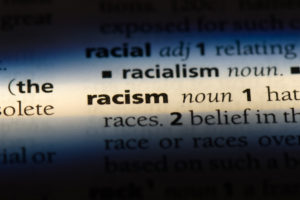In the “Physician Placement Starting Salary Survey: 2007 Report Based on 2006 Data,” conducted in collaboration with the National Association of Physician Recruiters, found that physician-owned practices offered comparable salaries to hospital/IDS salaries for family practice without obstetrics ($130,000 versus $135,000), general internal medicine ($150,000 vs. $145,000) and noninvasive diagnostic radiology ($350,000 vs. $345,000). The pay-scales are high. Doctors can easily make over $1 million per year. I am not complaining about their salaries. I am complaining about their whining about lawsuit abuse. It does not exist and yet these rich doctors are using it to trick the public on tort reform.
Do we feel so sorry for doctors who make this much, to say its okay to injure your patients and pay nothing for their suffering? That is what the AMA and the U.S. Chamber of Commerce say that doctors want. There are almost no lawsuits against doctors. In Hawaii there were less than 30 last year. The doctors are making a lot of money. Why does everyone feel sorry for them?
Or maybe you don’t feel sorry for them. I am looking for a sense of what patients feel about doctors’ salaries and doctors injuring patients. What do you think?

A resident of Honolulu, Hawaii, Wayne Parsons is an Injury Attorney that has dedicate his life to improving the delivery of justice to the people of his community and throughout the United States. He is driven to make sure that the wrongful, careless or negligent behavior that caused his clients' injury or loss does not happen to others.










20 Comments
Supremacy Claus
In England, they make half. However, come hell or high water, they go home at 5 PM. You have an ice pick sticking from your head. Waiting time for emergency surgery? Six days.
I would appreciate a survey of law school grads, offered $175K knowing no real world law. And partners making $1million plus a year to damage our economy, and to destroy $millions in economic value every year left alive.
Dr. Anonymous
The bias of this author has motivated him to morbidly exaggerate the facts. I am a new physician, freshly out of medical school. I can promise that of the 50 or so established physicians I know personally, not a single one is earning anywhere near $1 million/year. I do find the yearly salaries stated to be approximately correct. Is 130K-150K unreasonable for a primary care physician? I believe it’s absurdly low. These Dr.’s have completed 11 years education and training beyond high school, at a minimum, and have accumulated $150,000-$300,000 of educational debt. After taxes and student loan expenses (which are almost completely taxable), the earnings drop to about $50,000/year. What do trial attorneys earn? How about sports players? What is the average salary for a VP with a B.A. in business at any major corporation in this country? What the author fails to explain, due to bias or ignorance, is the absolutely horrendous waste in our health care system. This is money spent directly due to fear on the part of my colleagues of being sued. This parasitic activity of Plaintiff’s Attorneys causes thousands of expensive, unnecessary tests and man hours to be wasted daily. Why do my colleagues order unnecessary tests to rule out disease or injury that has a less than 1% chance of being present? The answer is the same universally, uttered in emergency rooms and hospitals daily around the country, “it’s my license, I’m not taking any chances”. A tremendous amount of money is wasted in the hospitals due to these fears. If the opportunity for lawyers to earn millions in judgments was reduced, how many attorneys would take up the cause of medical malpractice? I have yet to meet a single Physician who hasn’t devoted his entire professional life to learning safe care for his patients. It’s what drives us. Furthermore, in Florida, when Physicians rallied for limitation on attorney’s fees in malpractice cases, suddenly the trial attorney lobby groups felt a 3 strikes rule was necessary, curious timing. This has become a battle of livelihood. I would suggest that the average American ask themselves an honest question, “What is the difference in a person whose goal is to be Dr. vs. an aspiring lawyer?” After reflection, decide who’s being honest.
James Cool
Dr. Anonymous:
Wayne is obviously biased. But your post reveals you're hardly impartial. To Wayne's credit, at least his post isn't anonymous.
Let's be real for a second. Doctors make mistakes. Sometimes they intentionally hurt people (it does happen) or they order tests or prescribe drugs solely for the kick backs and incentives. Medicine, like law, is a business.
That being said, whether a doctor means to or not, professional negligence sometimes results in people being seriously injured. Are you honestly saying those people ought not be justly compensated for their injuries?
Surely many lawyers make fine livings handling medical malpractice cases. But the notion that the majority of these claims are frivolous is not only patently biased, it ignores reality. Bringing a medical malpractice case under current tort laws requires a six figure investment on the part of an attorney. This is because medical malpractice insurers put up incredible fights to deny pay outs to justly injured victims. Thus one must spend a lot of money on experts, depositions, consultations, etc.
The true villain in this debate is the insurance industry. For years, big insurance has mismanaged its investments and under-reserved. That is why, despite declining med mal law suits and the institution of damage caps, medical malpractice insurance premiums keep on rising. Big insurance pits doctors against lawyers and lawyers against doctors and tells the people it's the fault of other plaintiffs who've been injured while they rake in the profits. We're so busy fighting each other, we don't notice big insurance making money at both ends.
It is perhaps the greatest shell game of all time. Big insurance keeps the players eyes off he ball long enough to take everyone's money. In the end, doctors are afraid of law suits and are raped by high premiums, trial lawyers are denigrated and forced to bet the farm on even the simplest cases and patients are left injured, holding the bag and unable to get fair compensation because tort reform laws make their claims worthless if they value below $300,000.
Let's be real: Doctors want to help people. Believe it or not, so do trial attorneys. Both are highly educated and both perform valuable services in society. Both are justly compensated. There is nothing wrong with either group making money and in that respect, Wayne's post may be somewhat out of place. But bear in mind that civil justice is about just that--justice. Uninjured people do not collect 7 figure verdicts. Uninjured people do not get their claims taken by trial lawyers. The insurance companies have lobbied for laws that prohibit all but the most grievously injured plaintiff's from ever reaching the courthouse steps.
If we're serious about helping people...all of us, doctor and lawyers need to join forces and help beat back the tide of anti-consumer legislation driven by big insurance companies. They're screwing doctors, lawyers, and patients. Big insurance knows that as long as we're busy fighting each other, we won't fight them.
James Cool
Supremacy Claus:
The percentage of law grads making $175k is remarkably small. Especially now. We're talking 5% and lower. The average (median) start salary for most law graduates is approx. $55,000 public sector and 75-80k private sector depending on the economics of your city. Additionally, the glut of lawyers (blame the ABA) has driven median incomes down all over for attorneys. The number of millionaire partners is very, very small. Much smaller than the number of millionaire doctors, I'd venture.
The reason doctor's salaries remain high is because the AMA has artificially created a doctor shortage by refusing to accredit new medical schools. It is the exact opposite of the mistake the ABA made by accrediting too many law schools creating a glut of lawyers.
Because the AMA has artificially created a bull market for doctors, the price of medicine remains very high whereas the cost of legal services is at a record low. You'll note that one of the few industries widely considered to have avoided the recession is the medical field.
Wayne Parsons
I respect what doctors do and I am also proud of what lawyers do. We are service providers and the service is justice. Health without justice is not a satisfactory world to live in. I also don't agree with the focus of Dr. A's response on the cost of health care. How about the many patients who are dying easch year or being seriously injured by medical negligence. That isn't my statistic and conclusion, its from Harvard School of public health. It amounts to a fully loaded 747 crashing each week. So whaqt is it? Is that sad fact because doctors are performing unnecessary tests? the statements by doctors like young Dr. A is what is wrong with medicine. He is wrong on the facts, is repeating the the myths that the insurance industry and U.S. Chamber spread. All I ask for is that the good doctor spend time trying to improve the delivery of health care and look at why patients are being injured. The anesthesiologists did just that and reduced the incidence of malpractice markedly. When illogical arguments like the "too many tests" defense are put aside maybe the medical profession will regain its stature. Until then blaming lawyers for bad doctors is just going to further erode the profession.
Supremacy Claus
Mr. Cool: Anytime you want the resume and full information of the author of the Supremacy, let me know. It will be the meaningless information of a stranger.
Lawyer Hypocrisy Test:
Will you or will you not support the removal of the privity obstacle to a legal malpractice case by an adverse third party? If you will not, shut up you lying hypocrite.
The overwhelming majority of medmal cases are weak cases, and fail at every stage of litigation. The filing of a weak case is legal malpractice. I believe in torts. Show us that you do too, to improve the careless performance of your profession, and to make the victims of lawyer carelessness whole with money damages.
The standard answer, the lawyer owes no duty of care to the other side is absolutely not true. There are dozens if not hundreds of duties to the adverse third party in the Rules of Evidence, of Conduct, of Civil Procedure, and of Criminal Procedure, as well as in hundreds of appellate decisions dating back a 1000 years.
Supremacy Claus
Every medical error is the fault of the lawyer. The health provider has a duty to survive. Instead of investigating and preventing errors, the cover up seeks to help the entity survive. All reports will be subject to discovery.
When the lawyer is willing to open all work products to discovery, and to immunize all good faith investigation of medical error, that is when a big drop will result.
Harvard is an extreme left wing nutso place. Nothing coming out of it has the slightest credibility. The real death rate from medical error is around 3000 people a year. That is a pretty low rate given the billions of procedures carried out each year. You are safer in the hospital than at home, in terms of the risk of death.
James Cool
Claus:
By the removal of what you call the "privity obstacle" are you suggesting that we permit third parties (i.e. defendant doctors or perhaps neutral uninvolved parties) to sue lawyers for malpractice? If so, I'm not sure that's a privity problem as much as it is a standing problem. You need to be injured in some fashion in order to be sued.
If you mean defendant doctors ought to be able to sue those who bring "frivolous" suits against them, then such a remedy already exists. Here in Arizona is is called "wrongful institution of civil proceedings." Admittedly, WICP deals primarily with lawsuits brought for an improper purpose (i.e. harassment or extortion). However, lawyers and plaintiffs are also subject to sanctions for filing "frivolous" lawsuits under Rule 11 of the Fed. R. Civ. Pro.. These sanctions could include fines or contempt. Additionally, if these law suits fail to state cognizable claims or name the right defendants they are subject to dismissal under Rule 12 of the FRCP and the prevailing party is often awarded attorneys fees in these scenarios.
If, as you say, the majority of these suits are without merit, then how come they're not all being dismissed with attorneys fees for the defendants? How come more attorneys are not facing Rule 11 sanctions?
Regarding your argument that one is safer than a hospital than at home, I agree. When I taught high school English, I remember telling students that this was a fallacy known as "straw man." In essence, a straw man is where you conflate your opponents argument with an absurd facsimile which can be easily torn down..i.e., like a straw man. I'm not sure I see your point there.
In short, I think the system already provides adequate remedies for folks who are the victims of these "frivolous" law suits to be made whole via sanctions and the award of fees.
All that said, you make an interesting point about opening internal reports to discovery. I believe you meant to argue that we ought to seal these investigations so they cannot be used against the hospital/doctors. This will encourage and promote safety, you contend. I do not disagree that might promote safety. But my concern is this: How do we ensure, in that scenario, that someone who has been seriously hurt or killed by medical negligence (and it does happen from time to time) will be fairly compensated for their losses, or to adopt your phraseology, made whole?
Supremacy Claus
Mr. Cool: I clicked on your profile by mistake. I did not know you were a student. I apologize for any harsh tone. I have no desire to pick on a student. I do suggest you find another specialty than medmal. It is dead, without a future.
1) ""wrongful institution of civil proceedings." Admittedly, WICP deals primarily with lawsuits brought for an improper purpose (i.e. harassment or extortion)" You are correct. The plaintiff must prove malice. Short of a taped or written confession by the lawyer, that recourse is hollow. It is infinitesimally rare. Rule 11 is also hollow, because of its 21 days Take Backsies for the lawyer. It was effective from 1983 to 1993. That is why Congress gutted it at the request of its lawyer lobbyists. No one else has had that privity obstacle as you know since 1905. And no one else has a Take Backsies for their carelessness. The judges in medmal get campaign donations from plaintiff and from defense bars. Their self-interest is to hold a trial, despite the risks to the defense lawyer's legal interests. So the judge has the same bias and personal self-interest as both bars.
2) The victims of medical error should get Medicaid after an attestation by the defendant. That can be done quickly. It is also a more honest remedy. Every penny of medmal comes from the public in the form of higher prices, or decreased access (see the closure of maternity wards, trauma centers, and even emergency rooms).
3) The immunity of the hospital should be in exchange for a thorough investigation of the error and systematic changes to prevent it recurrence, plus its publication to the Web so all similar entities may implement the solutions without suffering the error.
4) The idea that money is compensation for a serious injury can only be seriously proposed by a healthy young person. It is a lawyer scam, a pretext to plunder health care.
James Cool
Claus:
I don't feel picked on. I promise if I start to feel over-matched I will let you know.
1.) I agree that R.11 could have more teeth. But as with many tort "reform" measures, changes to Rule 11 were reactionary and partisan. That said, if a suit is truly frivolous, I see no reason not to sanction an attorney or Plaintiff. Just remember, sometimes one has to file suit in order to get the discovery necessary to learn what really happened. Thus we find ourselves with a quandary--openness might reduce suits but doctors fear it will generate more. I agree this is a difficult position for everyone.
2.) Medicaid also comes from the public. Also, you ignore how the insurance industry works. Technically, the money does come from the public in some fashion, but if Big Insurance is doing their job right, it comes out of reserves. Does it not trouble you in the slightest that insurance premiums keep rising and pay outs keep dropping desipite the fact that law suits and verdict means are dropping? Who's the real bad guy here? I think it's insurance companies.
Also, Medicaid will pay a person's medical bills and it will attempt to remedy their medical condition. But what of their pain and suffering? What of the things they lost? Such as the ability to live a normal life? What about family of those who have lost a loved one to medical malpractice--how will medicaid compensate them?
3.) Your investigation and safety reform idea is a noble one. I have no argument against it, except for the quandary identified earlier. If your position is "end med mal suits and we'll do this" then you know very little about negotiation. Polar positions rarely result in fruitful negotiations. If you want to propose compromise reforms that still offers some means of recompense for victims while providing greater protection to doctors, a tit for tat compromise, then let's hear it.
4.) Okay, you contend money does not compensate injury. I don't disagree per se. Tell me: what does? Can we bring the wrongfully dead back? Can we make pain disappear when medicine cannot heal it? We ought to fix what can be fixed, help what can be helped, and make up for what cannot be fixed or helped. So, if not by money, how do we do that?
If your answer is: "life sucks, people get hurt and die" then I find that woefully unacceptable."
I would find arguments against money damages more persuasive if they weren't based in quaint, Marxist aversions to the power of money.
So...what's your solution?
Comments for this article are closed.